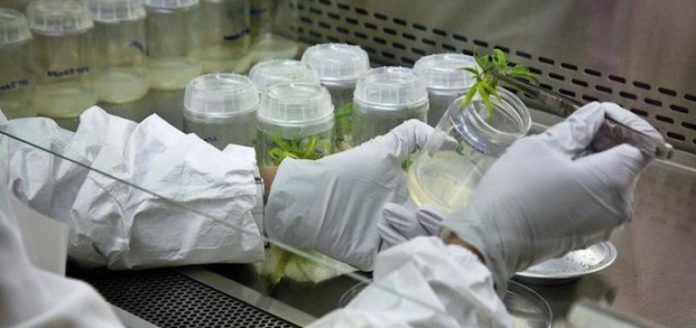
The Colorado state Board of Health approved nearly $8 million in grant funding Wednesday for eight separate studies investigating the potential medical benefits of marijuana.
The studies, most of which will be overseen by researchers from various universities, will explore marijuana’s efficacy when used to treat post-traumatic stress disorder, Parkinson’s disease, pediatric epilepsy and brain tumors, and will compare the plant’s painkilling qualities with those of prescription opioids.
The aim of the research is to help physicians better understand the biochemical effects of prescribed marijuana, and to build on existing data about proper dosing from previous state-funded medical cannabis research programs. The research is also meant to help Colorado determine which medical conditions should be added to the state’s list of ailments that make patients eligible for medical marijuana.
According to the Associated Press, three of the eight studies approved Wednesday still require federal approval and access to the federal government’s legal marijuana supply, which is found at the University of Mississippi.
The U.S. government grows marijuana for research purposes at Ole Miss in the only federally legal marijuana garden in the U.S. The National Institute on Drug Abuse oversees the cultivation, production and distribution of these crops — a process through which the only federally sanctioned marijuana studies are approved.
Federal authorities have long been accused of only funding marijuana research that focuses on the potential negative effects of the drug. Since 2003, more than 500 grants for marijuana-related studies have received federal approval, but only about 30 of those have examined the potential medical benefits of marijuana.
What makes the Colorado studies unique is that all of them are investigating the medical promise of marijuana for various ailments.
A number of studies in recent years have shown the medical and public health potential of cannabis. Purified forms may attack some forms of aggressive cancer, and marijuana use has been tied to better blood sugar control and may help slow the spread of HIV. Marijuana compounds also have potential for use in the treatment of autoimmune disorders and Alzheimer’s disease. One study found that legalization of the plant for medical purposes might even lead to lower rates of suicide and violent crime.
The approval of the research grants comes days after Congress passed historic protections for medical marijuana operations in states that have legalized marijuana for medical purposes.
That legislation protects medical marijuana programs in the 23 states where medical marijuana is legal, as well as in 11 additional states that have legalized CBD oils, a non-psychoactive ingredient in marijuana that has shown to be beneficial in some severe cases of epilepsy.
Colorado legalized medical marijuana in 2000 and became the first state to legalize recreational marijuana in 2012. Voters in Oregon and Alaska cast ballots in November to join Colorado and Washington in legalizing recreational pot use.
Still, the federal government continues to ban the plant in any form, classifying it as a Schedule I substance “with no currently accepted medical use.”
